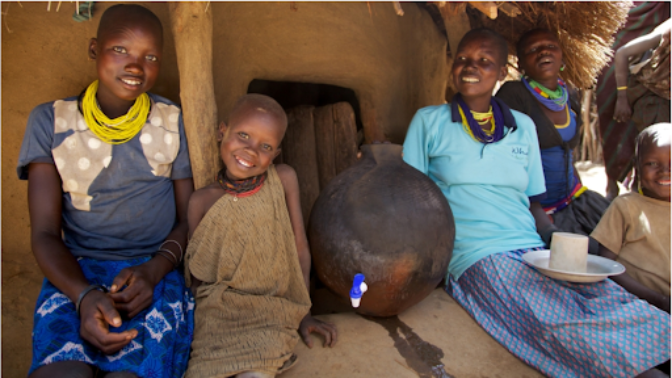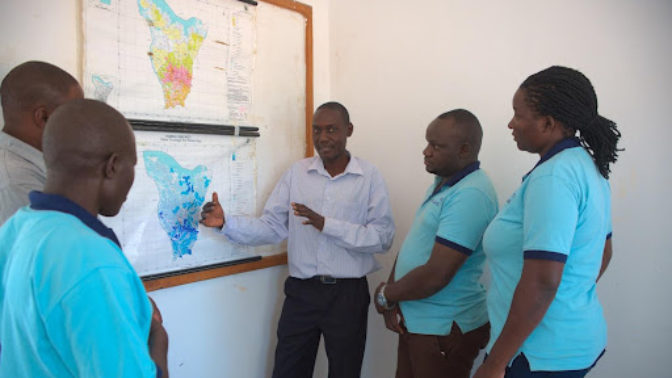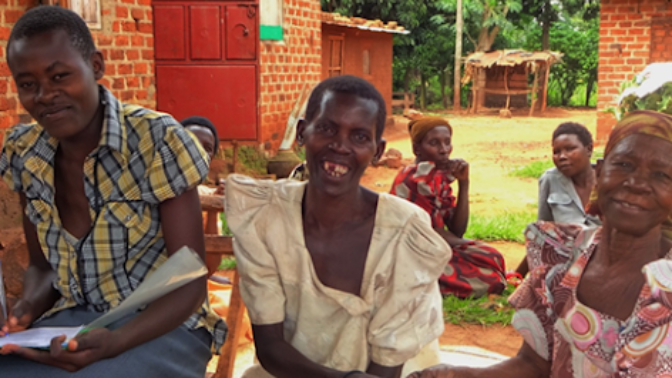How Whave, a Ugandan-based social enterprise, is making it possible for all rural families to have safe water daily
In Uganda, more than one third of rural water-points are non-functional for prolonged periods, and another third are not adequately functional. Though the Government and many aid agencies prioritize piped water supply, the reality is that rising population rates, financial constraints, and hydro-geology mean that the majority of the population will remain dependent on hand pumps many decades into the future.
In this blog post, we speak with Dr. Adam Harvey, Managing Director at Whave, to learn more about the issues and how Whave’s efforts alongside its government partners have helped to ensure a reliable 24/7 safe water supply to over 250,000 people in 900 communities throughout the country, and how the target of reaching everyone, is coming within reach.

- Adam, what is Uganda’s current water supply infrastructure like? And can you elaborate on what makes Whave’s approach within the rural water sector there unique?
Uganda has approximately 30 million people in farming communities who are not connected to piped water networks, and are therefore “off-grid”. According to official figures, over 30% have no modernized waterpoint, not even a hand-pump. About 20 million people depend on hand-pumps and a small percentage have solarized boreholes.
Whave is a utility service provider focused on Sustainable Development Goal (SDG) 6.1 and the Ugandan national rural water O&M framework/policy, meaning that it ensures all communities have 24/7 reliable safe water. In practice, this means that Whave advocates for capital expenditure to be used to build infrastructure for the 30% who have no waterpoint, and for the existing waterpoints to be maintained in working condition through professionalized preventive maintenance services. Whave advocates for maximum possible conversion of hand-pumps to solarized tap-stands and micro-piped point-of-use supply, while services for both these solarized boreholes and the hand-pumps are established. This is to ensure that communities with hand-pumps are not neglected.
Whave’s unique contribution has been to demonstrate that the endemic crisis of failed service delivery is addressed successfully and at less cost than current aid spend rates, when a professionalized maintenance approach is taken. This is to ensure quality control of hardware and technician services, and to provide government and communities with monitored services of the quality that people are willing to pay for.

- How has a public-private partnership (PPP) approach helped facilitate your efforts in the region?
The PPP approach developed and tested by Whave since 2011 has demonstrated that 24/7 reliable safe water is feasible, if government and donors joined hands to support contracting of local technicians on a performance-payment basis. The Government of Uganda adopted the PPP approach formally as a national policy for rural water in 2019, calling it the Professional Management Approach (also known as the O&M framework for rural water infrastructure, or CBMS+). This formal endorsement strengthened Whave’s effort to achieve SDG 6.1 in the region, making it easier to coordinate the activities of aid donors and other stakeholders such as NGOs, politicians, local government, and communities.
- Can you elaborate on how Whave is empowering communities to operate sustainable water systems in Uganda?
Community water management is a key component of the new operation and maintenance (O&M) framework in rural communities which are “off-grid”, meaning they are not connected to large piped water networks. Whave invites these communities to study and engage in a service agreement that clearly sets out their obligations, Whave’s obligations, and local government obligations. Whave encourages women to come forward to take leading roles in the committees. These two interactions with rural communities strengthen their capability to manage water services and other services and build better organized communities.

- How are vulnerable groups and gender issues addressed and how does this impact Whave’s approach?
The service agreements signed between Whave and farming communities, include clauses on how vulnerable people have assurance of reliable 24/7 safe water supply. The water management committees are trained by Whave to allocate service fee collection in such a way that exemptions are available to persons with injury or ill-health or disability. Also, they are trained to find relatives who have moved away and are willing to contribute through mobile money payments.
- Whave has contributed to the National Framework for Operation and Maintenance of Rural Water Infrastructure in Uganda. How has Whave gotten involved and how will this framework support sustainable water supplies in the region?
The Operation and Maintenance Framework of Rural Water Infrastructure in Uganda (OMF) was developed and published by the government after close collaboration over several years between government and Whave on testing the PPP/professionalized maintenance approach. In 2011, Whave suggested performance-payment of technicians and preventive maintenance under a PPP structure, to the Ministry’s rural water department, which supported the concept, then took an active part in annual workshops conducted by Whave involving all stakeholders including Hand-Pump Mechanics Associations, NGOs, local government, MPs, and aid donors. In 2015, the ministry approved the approach in detailed evidence and analysis workshops based on Whave’s findings and, in 2019, published the approach as a national policy.
The OMF supports a fully sustainable solution to rural water supply, because it defines for all stakeholders the key principles required. These include the establishment of a uniform national set of performance indicators for service providers (including repair time targets, service agreement enrollment rates, payment compliance targets, etc.), the collection and accountability of fees by service providers, the regulatory function of district water authorities and central government. The framework will take some time to implement in practice, and Whave is taking a strong role in assisting government and other stakeholders in this implementation.

- Throughout the COVID-19 pandemic, how was Whave able to continue its operations? Did your activities change significantly during this time?
Whave continued its services throughout the COVID-19 pandemic, since the services were essential to strengthening resilience. The government provided Whave with travel permits to ensure essential services such as Whave’s 24/7 safe water assurance operations were not threatened. Whave reduced fee payments for all communities to be sure that financial pressures of the pandemic did not threaten service delivery.
To learn more about Whave’s efforts in Uganda, please see their Donors’ Guide to Rural Water Service Delivery and publication on Ten Factors for Viable Rural Water Services.